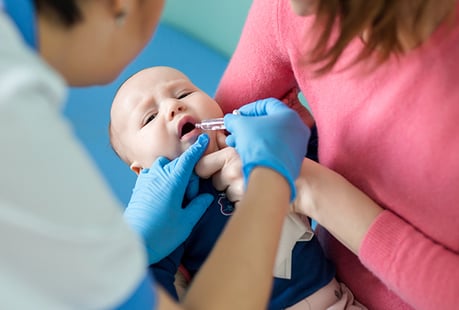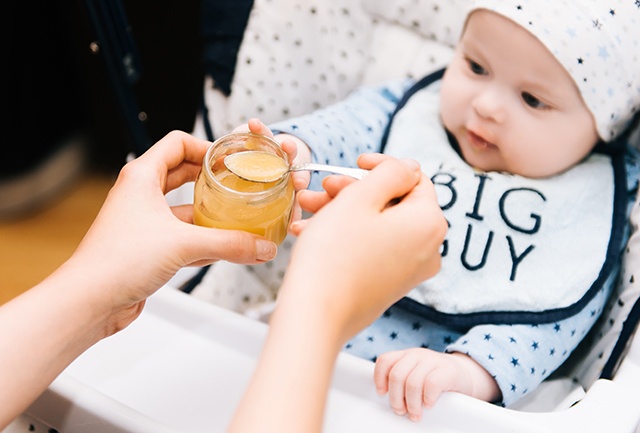From April 21 – 28, the Centers for Disease Control and Prevention (CDC) along with partners, community leaders, healthcare professionals and stakeholders, will observe National Infant Immunization Week (NIIW). This annual observance highlights the importance of protecting infants from vaccine-preventable diseases and celebrates the achievements of immunization programs and their partners in promoting healthy communities.
Vaccines have drastically reduced infant death and disability here in the United States. The CDC highlights some of the milestones that have been reached:
- Through immunization, we can now protect infants and children from 14 vaccine-preventable diseases before age two.
- In the 1950’s, nearly every child developed measles, and unfortunately, some even died from this serious disease. Today, many practicing physicians have never seen a case of measles.
- Routine childhood immunization in one birth cohort prevents an estimated 381 million illnesses, 24.5 million hospitalizations, and 855,000 early deaths over the course of their lifetimes, at a net savings of $360 billion in direct costs and $1.65 trillion in total societal costs.
- The National Immunization Survey has consistently shown that childhood immunization rates for vaccines routinely recommended for children remain at or near record levels.

Child Care Aware® of America wants to highlight the important role child care providers play in keeping our children healthy and safe. As trusted professionals, child care providers often serve as a resource for new parents and families. One of the ways that child care providers can help ensure that the children in their care are healthy is to encourage families to follow the CDC’s childhood immunization schedule. This schedule identifies the vaccines that children need based upon their age. The schedule was developed by experts at the CDC, with recommendations from the Advisory Committee on Immunization Practices (ACIP) and input from both the American Academy of Pediatrics (AAP) and the American Academy of Family Physicians (AAFP).
Related to immunizations, child care providers should:
- Encourage families to follow the recommended vaccination schedule.
- Review your child care program’s policy on vaccination and children.
- Educate families on the importance of vaccines.
- Review your policies regarding reporting of notifiable disease outbreaks. Your state health department’s website should have a list of diseases that must be reported.
- Remember, vaccines are not just for children – ensure that your staff are vaccinated as well, especially for pertussis, measles, and flu.
Finally, during NIIW, the CDC encourages child care providers to talk to parents about the importance of on-time immunization and share information via their newsletters, websites and social media channels, using the hashtag #ivax2protect. The NIIW website has sample social media content, website banners, key messages and more. We also encourage you to read this article about how to support immunization within your childcare center. In addition, CDC has a slide deck that childcare directors can use to train their staff about ways to support immunization. Join CDC, AAP and What to Expect for a Twitter storm April 24, 2018 from 8:00-10:00 am ET and share why you say #ivax2protect.
Child care providers play a vital role in ensuring the health, safety, and well-being of our youngest children. Please join us in observing National Immunization Week!
Additional resources:
- Parents Guide to Immunizations
- Immunizations and Developmental Milestones Tracker
- Fact sheet “Infant Immunization FAQs”, which is available in English and Spanish






